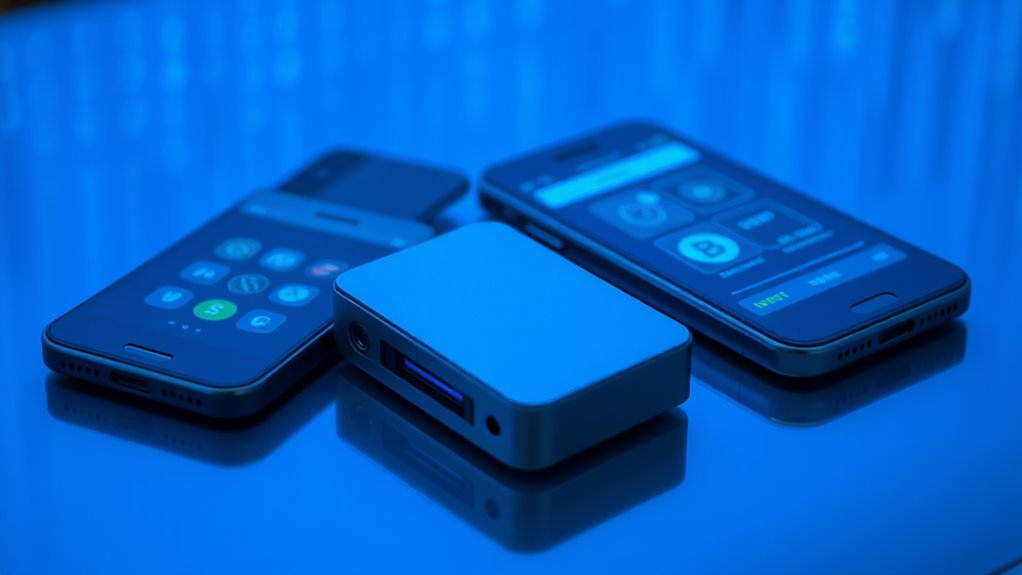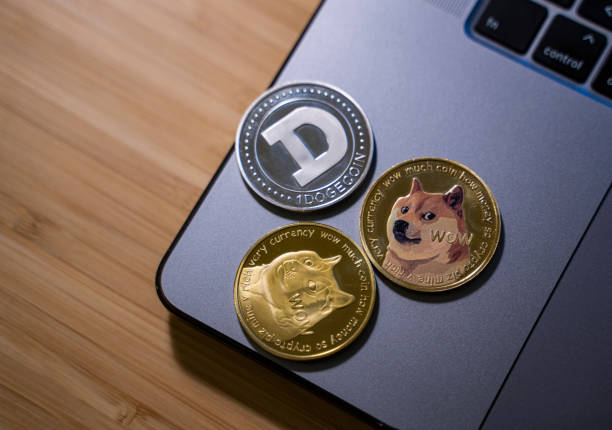Digital Crypto Wallets
Note: This post may contain affiliate links, and we may earn a commission (with No additional cost for you) if you make a purchase via our link. See our disclosure for more info. The crypto world is constantly changing. This content is for informational purposes only and not financial, legal, or professional advice So, please verify the info on the cryptocurrency provider’s websites.
Digital crypto wallets are like high-tech purses for your digital cash. They don't hold the crypto itself but stash away your private keys. There are custodial wallets—trust the middleman, or noncustodial ones—where you're in the driver's seat. Hot wallets are online and convenient, while cold wallets are offline and safer for long-term storage. Just remember: lose your private keys, and it's game over for your assets. Curious? There's more to the crypto wallet saga.

In a world where digital currency is becoming the norm, digital crypto wallets have stepped into the spotlight, serving as the essential tool for managing crypto assets—sort of like a high-tech purse, but way less fashionable. These wallets don't actually store the crypto itself; instead, they hold the private keys needed for transaction signing. Think of them as a digital keychain, but way more complicated. Users can send and receive cryptocurrency through public addresses and even scan QR codes. Ledger's hardware wallets store these private keys in a Secure Element chip that keeps them isolated from potential online threats. There are two main flavors of wallets: custodial and noncustodial. Custodial wallets, like those offered by exchanges, hand over key management to a third party, meaning you're trusting someone else to keep your digital treasures safe. Noncustodial wallets, on the other hand, let you take control. It's empowering, but also comes with the risk of losing your private keys. Lose those, and you can kiss your assets goodbye.
Wallets also come in hot and cold varieties. Hot wallets are connected to the internet, like mobile apps, while cold wallets are offline, like hardware devices. There are software wallets, hardware wallets, and even paper wallets—because who doesn't love a good old-fashioned printout? Examples include Coinbase Wallet (hot), Ledger (cold), and Zengo, which uses some fancy multi-party computation for a hybrid approach. Cold wallets provide better long-term storage for significant investments due to their increased protection against hacking. Given that Dark Web communities often share strategies related to the safeguarding of digital assets, understanding these dynamics is crucial for users.
Security is a big deal in this digital land. Losing your private keys is like misplacing your life savings. Hardware wallets keep those keys away from the internet, reducing the odds of being hacked. Online wallets rely on encryption and two-factor authentication, but nothing is foolproof. Seed phrases can help you recover access, but good luck remembering where you hid that piece of paper. Regular security audits are a must, because in the crypto world, it's better to be safe than sorry.
Digital crypto wallets: complicated, risky, but essential. Welcome to the future.
Frequently Asked Questions
Are Digital Crypto Wallets Safe From Hacking?
Hacking is a real concern, and no one is safe. Attackers have all sorts of tricks up their sleeves—from malware and keyloggers to good old-fashioned phishing scams.
It's like a digital Wild West out there, with your data as the prize. Sure, some wallets try to shield you with fancy features, but vulnerabilities lurk everywhere.
Can I Access My Wallet From Multiple Devices?
Accessing a wallet from multiple devices? Totally doable.
Many software wallets let users hop between desktop and mobile. It's like having your stuff everywhere.
But, hold up! Security's a biggie. Hot wallets are convenient but, oh boy, they're like leaving your front door wide open.
Hardware wallets? They need a physical touch.
What Happens if I Forget My Wallet Password?
Forgetting a wallet password can be a nightmare. Seriously. It's like locking yourself out of your own house, and there's no locksmith in sight.
No reset options exist. Just you, your memory, and a cold, hard reality. High-profile losses are real, with millions trapped forever.
Recovery attempts can cost a fortune, and guess what? They might not even work. So, good luck with that.
You might want to reflect on a backup next time.
Are There Fees Associated With Using Digital Wallets?
Yes, there are fees—lots of them.
Network fees, exchange fees, withdrawal fees. It's like a buffet, but you're still paying for every little thing.
Custodial wallets might hit you with service charges. Smart contracts? Yup, they've got their own fees too.
Want to move your funds? Get ready to cough up more. It's a maze of costs.
And don't forget the hidden fees lurking in the shadows. Crazy, right?
How Do I Transfer Funds Between Different Wallets?
Transferring funds between wallets? Easy-peasy, right? Select "Send," pick your currency, and enter the recipient's public address.
Just don't mess up that address—typos equal disaster. Confirm the amount and fees. You're not done yet! Double-check compatibility; sending Bitcoin to a Litecoin address is a no-go.
After hitting send, track the transaction. Fingers crossed it arrives. If not, well, better luck next time. Keep your records handy; you'll need them.











